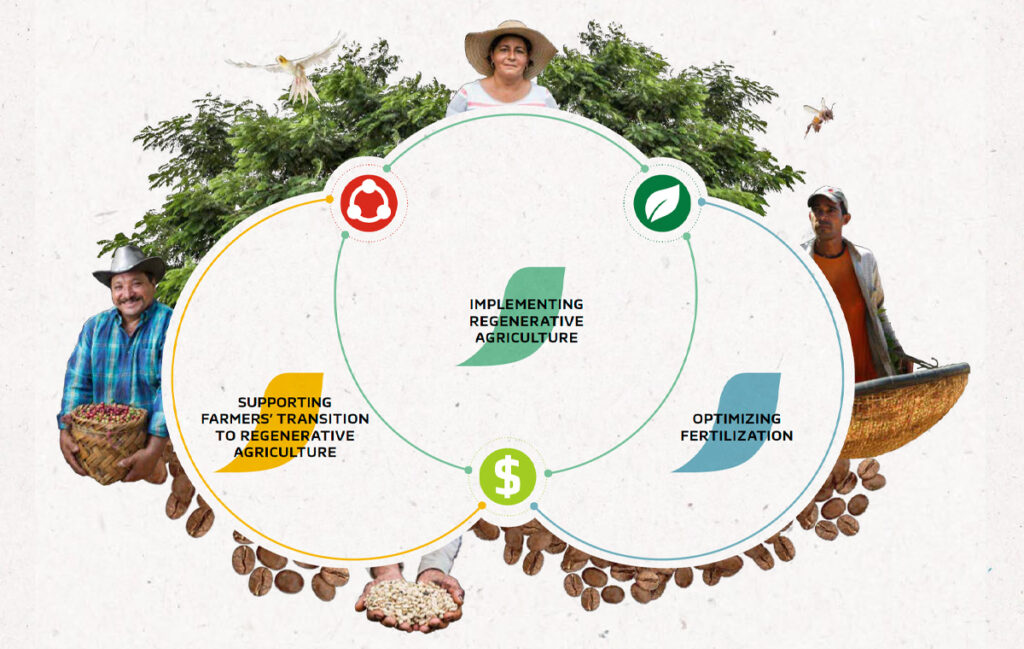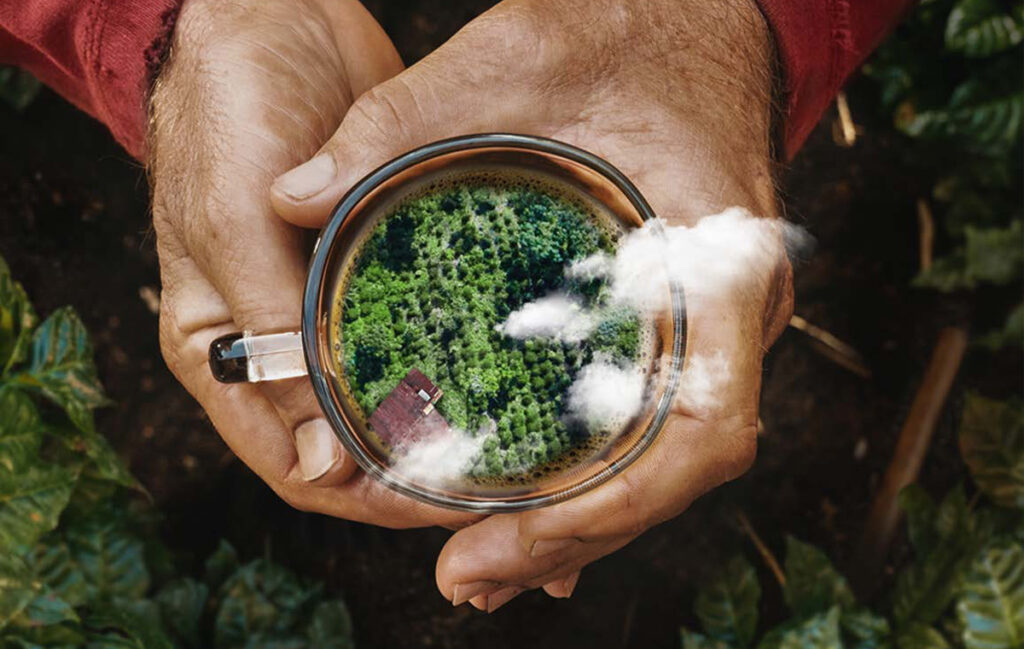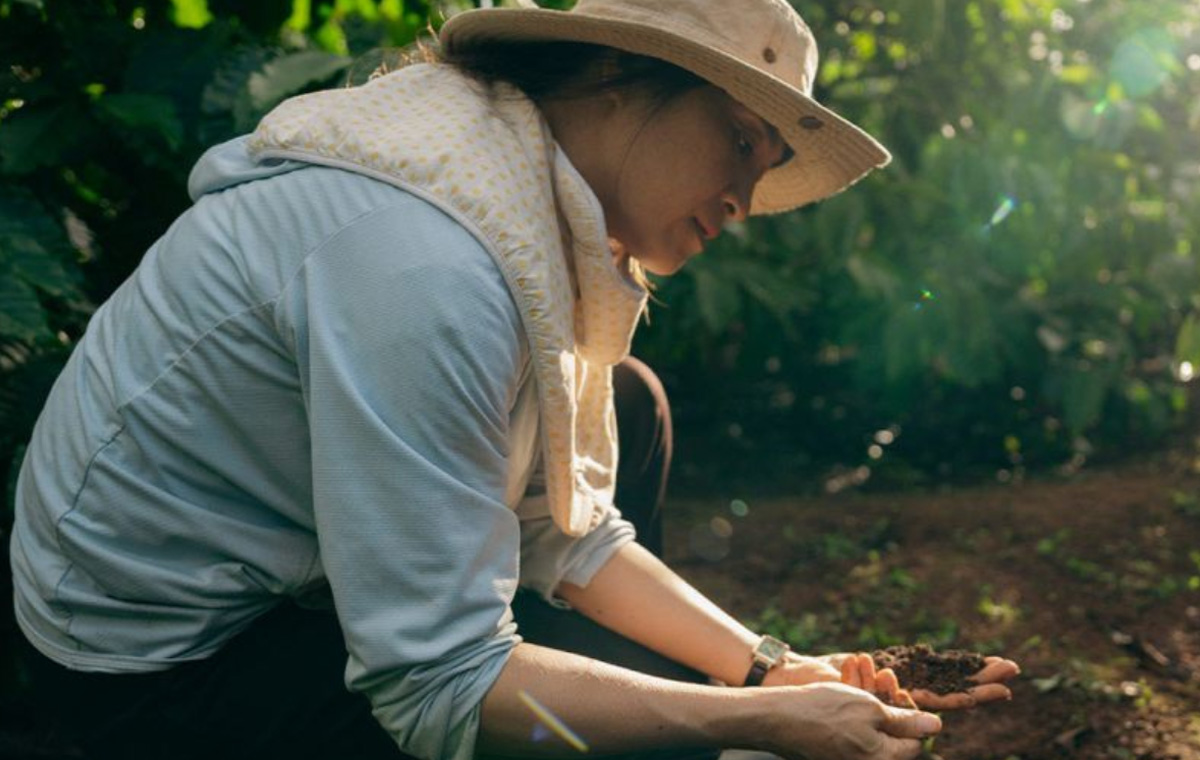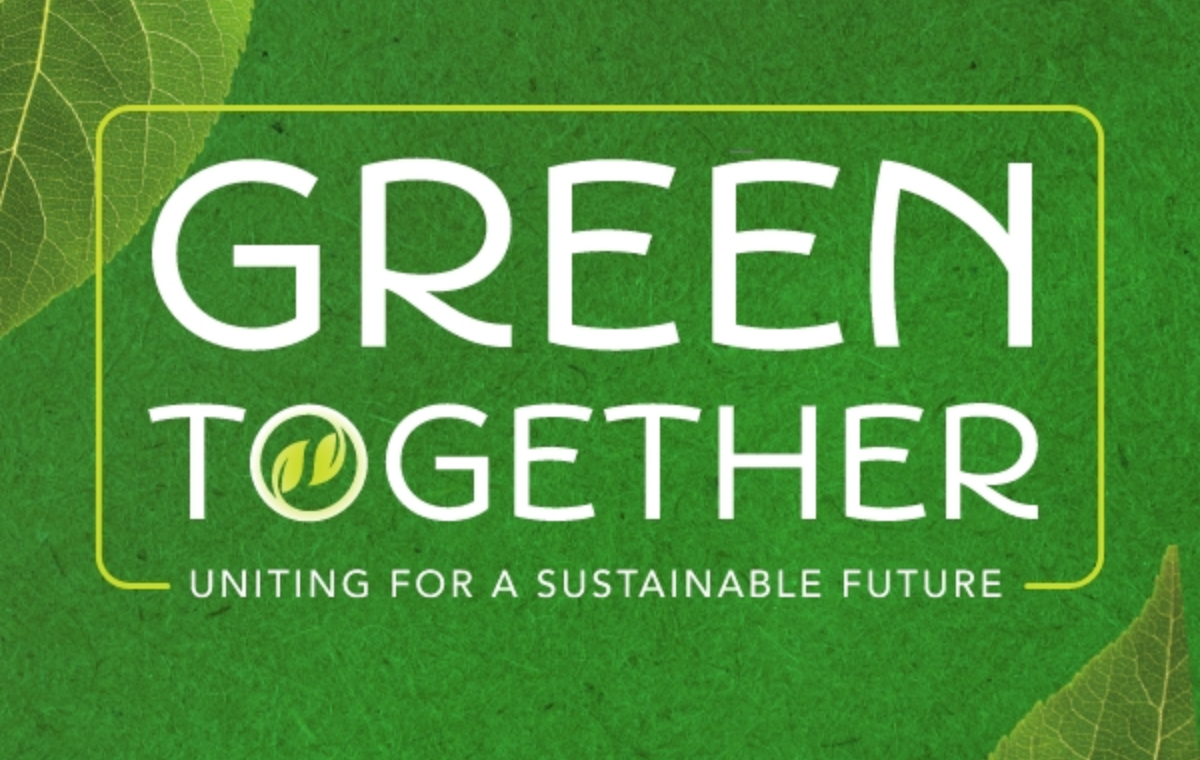Did you know that globally, about 2.25 billion cups of coffee are consumed daily1? In the U.S., Nescafé is a category leader in instant coffee — a category that is expected to keep growing2 thanks to its great taste, variety, and convenience.
That position, however, comes with responsibilities. As global coffee consumption continues to rise, climate change and more extreme temperatures are creating challenges for coffee growers around the world. Through the Nescafé Plan 2030, Nestlé is working with coffee farmers to transition to regenerative farming practices that can help reduce greenhouse gas emissions from coffee farming, while also helping improve farming yields.
Nestlé is investing over $1 billion globally to accelerate the shift to regenerative agriculture, and the Nescafé Plan 2030 is a key way they are driving progress within the coffee supply chain. Through the plan, Nescafé is providing farmers with training, technical assistance and high-yielding coffee plantlets. The goal is to empower farmers to transition to regenerative coffee farming practices that can reduce greenhouse gas emissions and increase their incomes by improving productivity and resilience to climate change.

Supporting Farmers’ Transition to Regenerative Coffee Farming
Nescafé will work with coffee farmers to test, learn, and assess the effectiveness of multiple regenerative agriculture practices.
Nescafé aims to achieve:
- 100% responsibly sourced coffee by 2025
- 20% of coffee sourced from regenerative agricultural methods by 2025 and 50% by 2030 as part of Nestlé’s ambition for its key ingredients
Piloting a Financial Support Program in Mexico, Côte d’Ivoire and Indonesia to Accelerate the Transition to Regenerative Agriculture
Nescafé is committed to supporting farmers who take on the risks and costs associated with the move to regenerative agriculture and will provide programs that aim to help farmers improve their income with that transition. In Mexico, Côte d’Ivoire and Indonesia, Nescafé will pilot a financial support program to help farmers accelerate the transition to regenerative agriculture. Through this program, Nescafé, together with coffee farmers, will test and learn the best approach in each country. These could include measures such as:
- Conditional cash incentives for adopting regenerative agriculture practices
- Income protection using weather insurance
- Greater access to credit lines for farmers
Nescafé will track the progress and assess the results of its field programs with coffee farmers through its Monitoring and Evaluation partnership with the Rainforest Alliance. Its efforts will be complemented by new and expertise-focused partnerships, like with Sustainable Food Lab for coffee farmers’ income assessment, strategy, and progress tracking.
Reducing Greenhouse Gas Emissions also by Capturing and Storing More Carbon in the Soil
Regenerative agriculture also contributes to drawing down carbon dioxide from the atmosphere and reducing greenhouse gas emissions. That’s why regenerative agriculture is a key part of Nestlé’s Zero Net roadmap. Nescafé aims to contribute to Nestlé’s Zero Net commitment to halve greenhouse gas emissions by 2030 and reach zero net greenhouse gas emissions by 2050. It will work with farmers, suppliers and partners to help protect agricultural lands, enhance biodiversity and help prevent deforestation. The brand intends to help farmers plant more than 20 million trees at or near their coffee farms.

Nescafé 2030 Plan Impact
In 2023 alone, Nestlé reached 277,000 coffee farmers across 27 origins through the Nescafé Plan 2030. These coffee growers participated in training on the principles of regenerative agriculture and over 21 million coffee plantlets were distributed to support the renovation of their coffee farms. Additionally, coffee farmers planted three million forest and fruit trees to help increase local biodiversity and build the natural resilience of their farms. Look for 2024 results in the progress report to be published later in 2025.
The Nescafé Plan 2030 outlines Nestlé’s extensive roadmap to accelerate action to support a more sustainable future for the coffee sector. Nestlé believes in a future where a delicious cup of coffee and environmental sustainability go hand in hand. That’s their commitment to delivering a cup of coffee you can feel good about.
Join Nescafé in brewing a more sustainable future for coffee!






